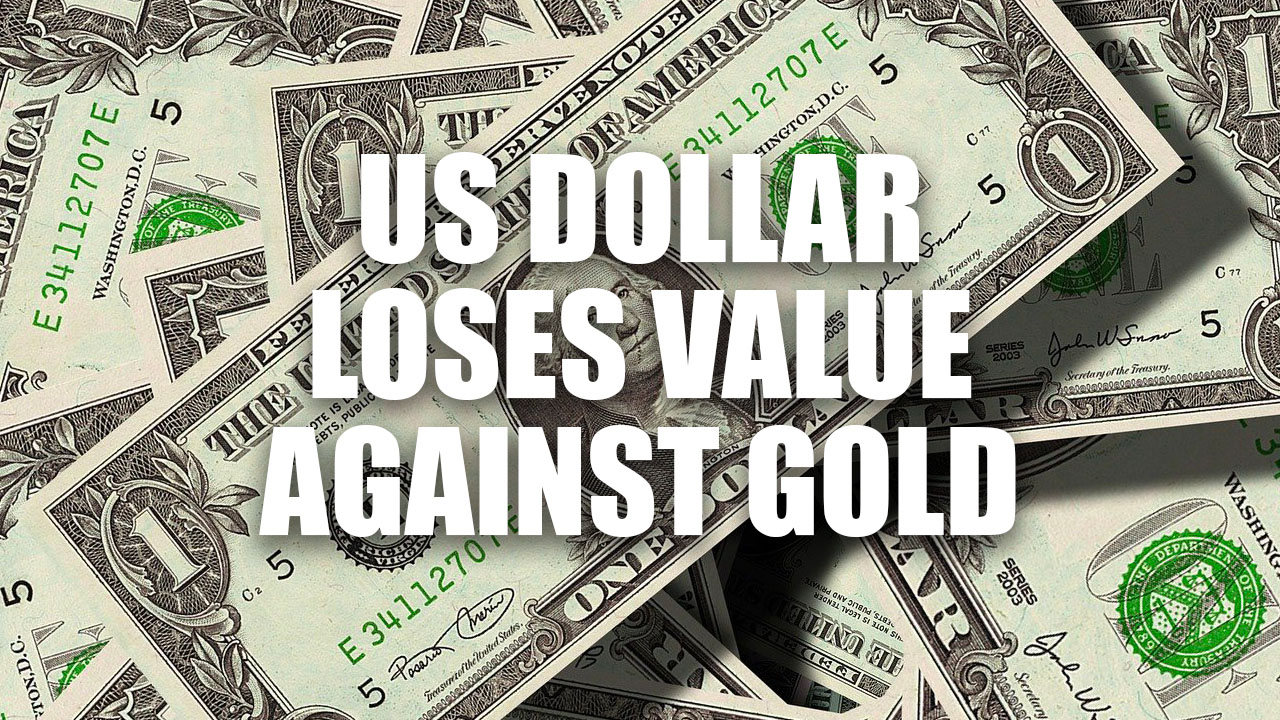- Retirement Examined
- Posts
- Retirement Examined
Retirement Examined
5-Minutes Of News, Strategies, & Tips

The weekly email that keeps you up to date on exciting Retirement topics in an enjoyable, entertaining way for free.
Start With Freedom From Debt
by Eric Seyboldt

As you approach the twilight years of your career, retirement planning takes a front-row seat in your portfolio of life’s tasks. It's not just about saving; it involves strategic financial maneuvering to ensure your retirement nest egg lasts throughout your golden years. One key aspect of this planning is prioritizing which debts to pay off before or during the early years of retirement. Given the economic climate of 2024, along with timeless financial principles, here’s a little guidance on which debts to prioritize to secure a financially sound retirement.
High-Interest Credit Card Debt
One of the most immediate steps in retirement financial planning should be addressing high-interest credit card debt. Credit cards typically have interest rates exceeding 20%, making them the most formidable foes of your retirement savings.
Impact of High Interest Rates: These rates can severely eat into your financial resources. For instance, a $10,000 debt at a 20% annual interest rate costs you $2,000 in interest alone per year.
Benefits of Paying Off Credit Card Debt: By eliminating these debts, you reduce your monthly outflows and prevent the compounding interest from rapidly depleting your retirement funds.
Personal Insight: Over the years, I watched many retirees struggle under the weight of credit card debt. Their relief was palpable once these debts were cleared, illustrating the profound impact on their financial freedom and stress levels.
Other High-Interest Loans
After tackling the credit card debt, turn your attention to other forms of high-interest debt such as personal loans or private student loans.
Assessing Loan Interest vs. Investment Returns: It is generally advisable to pay off any debt with interest rates higher than what your investments could reasonably return. For example, if a personal loan charges 15% interest, and your investment portfolio is returning 7%, it's financially sensible to pay off the loan first.
Current Economic Considerations: With the fluctuating economic landscape as of May 2024, being free of high-interest loans can provide more stability and predictability in your financial planning.
Mortgage Debt
Deciding whether to pay off your mortgage as you enter retirement is a nuanced choice and requires a balance of economic sense and personal comfort.
Interest Rate Comparison: If you have a low-interest rate on your mortgage and your investments are yielding higher returns, it might be prudent to continue with regular payments.
Psychological Comfort: However, for many, the peace of mind that comes with being completely debt-free is invaluable. Essentially, without a mortgage, your monthly obligations decrease substantially, simplifying your financial landscape.
Subjective Opinion: Personally, I find the idea of entering retirement without any mortgage obligations both mentally and financially reassuring, particularly in unpredictable economic times.
Auto Loans
Eliminating auto loans can also free up additional resources in retirement.
Ownership Benefits: Owning your vehicle outright alleviates the burden of monthly payments and may allow you to carry less comprehensive, less expensive insurance coverage.
Cost vs. Benefit Analysis: Compare the interest rate on your auto loan with potential investment returns. If the loan's interest rate is higher, prioritize its repayment.
Plan for Tax Efficiency
Understanding the interplay between debt repayment and tax implications is crucial.
Tax Deductibility: Some loans, such as mortgages, might offer tax benefits. Analyze whether the tax deduction from interest payments outweighs the benefits of paying off the loan early.
Emergency Fund
Maintain a robust emergency fund while paying off debt. This fund is crucial for covering unexpected expenses in retirement without having to incur new debt.
Fund Size: At Novus Financial Group, we often recommend having at least six months' worth of living expenses in an accessible, low-risk account.
Conclusion
In preparation for retirement, prioritize your debt repayment strategy to enhance financial stability and peace of mind. Focus on high-interest debts while considering the psychological benefits of certain repayments like mortgage and auto loans. Engage with a financial planner to tailor these strategies to your unique situation, ensuring a comfortable and secure retirement. Remember, every financial decision should weave into a larger tapestry of retirement planning, crafted to support your long-term well-being and financial security.
Reach out to us for a complimentary, 10-minute consultation call. Let's explore together how we can help you maximize your income in retirement, ensuring your golden years are as fulfilling and worry-free as you’ve always imagined. Email Eric at [email protected] or give us a call today to schedule your consultation. Let's make your retirement dreams a reality!
Missed out on Ring and Nest? Don’t let RYSE slip away!
Ring 一 Acquired by Amazon for $1.2B
Nest 一 Acquired by Google for $3.2B
If you missed out on these spectacular early investments in the Smart Home space, here’s your chance to grab hold of the next one.
RYSE is a tech firm poised to dominate the Smart Shades market (growing at an astonishing 55% annually), and their public offering of shares priced at just $1.50 has opened.
They have generated over 20X growth in share price for early shareholders, with significant upside remaining as they just launched in over 100 Best Buy stores.
Retail distribution was the main driver behind the acquisitions of both Ring and Nest, and their exclusive deal with Best Buy puts them in pole position to dominate this burgeoning industry.
Client Q & A of the Week - Do I Have Enough?

Client: Mark, I may work part-time for the first few years of my retirement. That said, based on your knowledge of my budget and investments, do I have enough to retire?
Mark: Understanding how much you need to save now can greatly depend on your future spending habits and the duration of your retirement. Let’s dive into the fundamental concepts and strategies that can help guide your retirement planning process.
The 4% Rule: A Starting Point
One extensively referenced guideline in the world of retirement planning is the 4% rule. This rule originates from the Trinity Study and has been widely analyzed and supported by numerous financial experts over the years. It provides a useful framework for calculating how much you might safely withdraw from your retirement savings each year without risking early depletion of funds.
Understanding the 4% Rule
According to the 4% rule, you are able to withdraw 4% of your total retirement portfolio value in the first year of retirement. This amount should then be adjusted annually for inflation. The origin of this rule assumes that your retirement will span approximately 30 years. To put this into perspective, if you have built a $1 million retirement portfolio, the rule allows you to use $40,000 in the first year, with adjustments in subsequent years to account for inflation.
However, relying solely on this rule without taking into account personal circumstances and economic conditions can be risky. It assumes a balanced investment in stocks and bonds, which may not align with every investor’s risk tolerance or financial situation.
Adapting to Economic Changes and Personal Circumstances
The 4% rule, while a valuable starting point, requires adaptation to fit individual financial situations and the ever-changing economic environment. Recent economic conditions, particularly considerations like inflation rates and interest trends as of May 2024, necessitate a closer analysis.
Diversifying Beyond Traditional Assets
Given today’s economic landscape, the traditional bond yields anticipated in the original formulation of the 4% rule might no longer generate the expected returns. Diversifying your portfolio to include assets like Real Assets (precious metals, Bourbon, real estate), international stocks, or potentially higher-yielding annuities could better safeguard your retirement savings against inflation and other economic shifts.
Dynamic Spending Strategies: Beyond the Static Rule
The static nature of the 4% rule does not account for market volatility or personal circumstances that might deviate from the norm. This can expose retirees to greater risk, especially if adverse market conditions occur early in retirement.
Adjusting Withdrawal Rates
A more dynamic approach to spending might involve adjusting withdrawal rates based on current market conditions and personal requirements. If the market is performing well, you might increase your withdrawal rate slightly, whereas in a downturn, scaling back can preserve your portfolio's longevity. This strategy requires regular review and potentially complex decision-making but can significantly mitigate the risk of depleting your retirement funds prematurely.
Managing Early Retirement Risks
An important consideration in retirement strategy is the sequence of returns risk. This refers to the risk that the timing of investment returns is unfavorable, with negative returns occurring early in retirement, which can severely impact the longevity of a retiree's savings.
Strategies to Counter Sequence of Returns Risk
Utilizing financial tools such as cash reserves and bond ladders can provide a buffer against poor market performance in the early years of retirement. By having a portion of investments in more stable and accessible assets, you can avoid the need to sell investments at a loss during market downturns, helping to ensure financial stability.
Conclusion
Planning for retirement involves a nuanced understanding of both financial principles and personal circumstances. While the 4% rule offers a good foundation, adapting this guideline to fit contemporary economic conditions and your individual lifestyle is crucial. Considering a dynamic spending strategy and preparing for sequence of returns risk are proactive steps that can enhance your financial security in retirement. Remember, the most effective retirement plan is one that is regularly reviewed and adapted to current conditions and future expectations. Taking these steps will help you enjoy your retirement years with peace and financial security.
Reach out to us for a complimentary, 10-minute consultation call. Let's explore together how we can assist you in optimizing your retirement income strategies, ensuring your best standard of living during retirement. Email Mark at [email protected] or give us a call today to schedule your consultation (614-214-6668).

Fixed annuities can be an essential component of a well-rounded retirement strategy, offering security, predictability, and efficiency in financial planning.
Here are current fixed annuity rates and their durations from Top A-rated carriers (subject to change at any time, not FDIC insured): No changes from last week
3- year: 5.70%
5-year: 6.15%
Please feel free to email Eric at [email protected] if you’d like to ask any questions or request information on these fixed annuities or other retirement topics that are on your mind.

“It’s not how much money you make, it’s how much money you keep, how hard it works for you, and how many generations you keep it for.”
REAL ASSETS, Invest Like the Ultra-Wealthy

The Bourbon Reserve; www.bourbon.fund
Is Your Retirement Portfolio Positioned To Weather The Storm?
As the US Dollar faces a historic downturn, and inflation climbs to levels unseen in decades, many Americans are urgently seeking effective strategies to safeguard their retirement funds against the tempest of today's economic and geopolitical turbulence.
Amid concerns ranging from spiraling debt limits and soaring interest rates to unprecedented government spending and the erratic behavior of financial markets, navigating your financial future can feel like choosing between the lesser of many evils. But what if there was a way to not just navigate but thrive?
A growing number of savvy investors are turning to tangible assets as a bulwark against economic uncertainty. Whether it’s converting part of your IRA or 401(k) into physical gold, or even barrels of Bourbon, these real assets offer a compelling protective strategy.
During periods of loose monetary policies and inflation spikes, or even in economic downturns, real assets like gold and Bourbon have historically outperformed. They not only offer a hedge against crises but also present an excellent diversification opportunity in more stable times.
Considering the volatile state of today's economy, investing in the “Real Assets” category could be the strategic move that fortifies your financial future. Ready to explore how these tangible assets can elevate your investment portfolio? Let’s connect to pave your path to a more secure and prosperous retirement.
Allocating funds into the asset class known as “Real Assets” may be a strategy that you should consider.
Ask us how to Rollover a portion of Your IRA or 401k To A GOLD IRA (link below) or a BOURBON IRA (www.bourbon.fund/how-it-works/) and:
Safeguard your assets from the collapsing dollar
Incorporate the ‘REAL ASSET’ class into your portfolio like the ultra-wealthy
Hedge against the current high-inflation conditions
Protect your retirement assets against economic crises
Just get in touch. It’s easier than ever.
CONNECT WITH US

Eric Seyboldt, MBA, Co-Founder & Managing Director of Novus Financial Group

Mark McCanney, Co-Founder and President of Novus Financial Group
Feedback or Questions?
You’re invited to get in touch with us if you’d like to find out how the Novus Financial Group can help you on your journey to a happy, fulfilling life in Retirement.
We have a lot of great information, as well as podcasts from our radio show ‘The Financial Insider’, and tools on our website - www.novusfg.com.
Office: 614-943-2265
Feel Free To Forward Retirement Examined To A Friend and Have Them Subscribe By Clicking The Button Below:
Reach out if you’d like to advertise your business on Retirement Examined or would like to be a sponsor.
Investment advisory services are offered by duly registered individuals on behalf of CreativeOne Wealth, LLC a Registered Investment Adviser. CreativeOne Wealth, LLC and Novus Financial Group are unaffiliated entities.
The content we provide here isn’t financial advice and cannot be taken as such. Please speak to your financial advisor before making any investment decision. Also, note that every investment comes with its risks and drawbacks. Lastly, we would like to remind you that past results cannot guarantee future returns.
This website contains one affiliate link. When you click on the link and make a purchase, we may receive a commission at no additional cost to you. We only promote companies that we have personally used or researched and believe will add value to our readers


